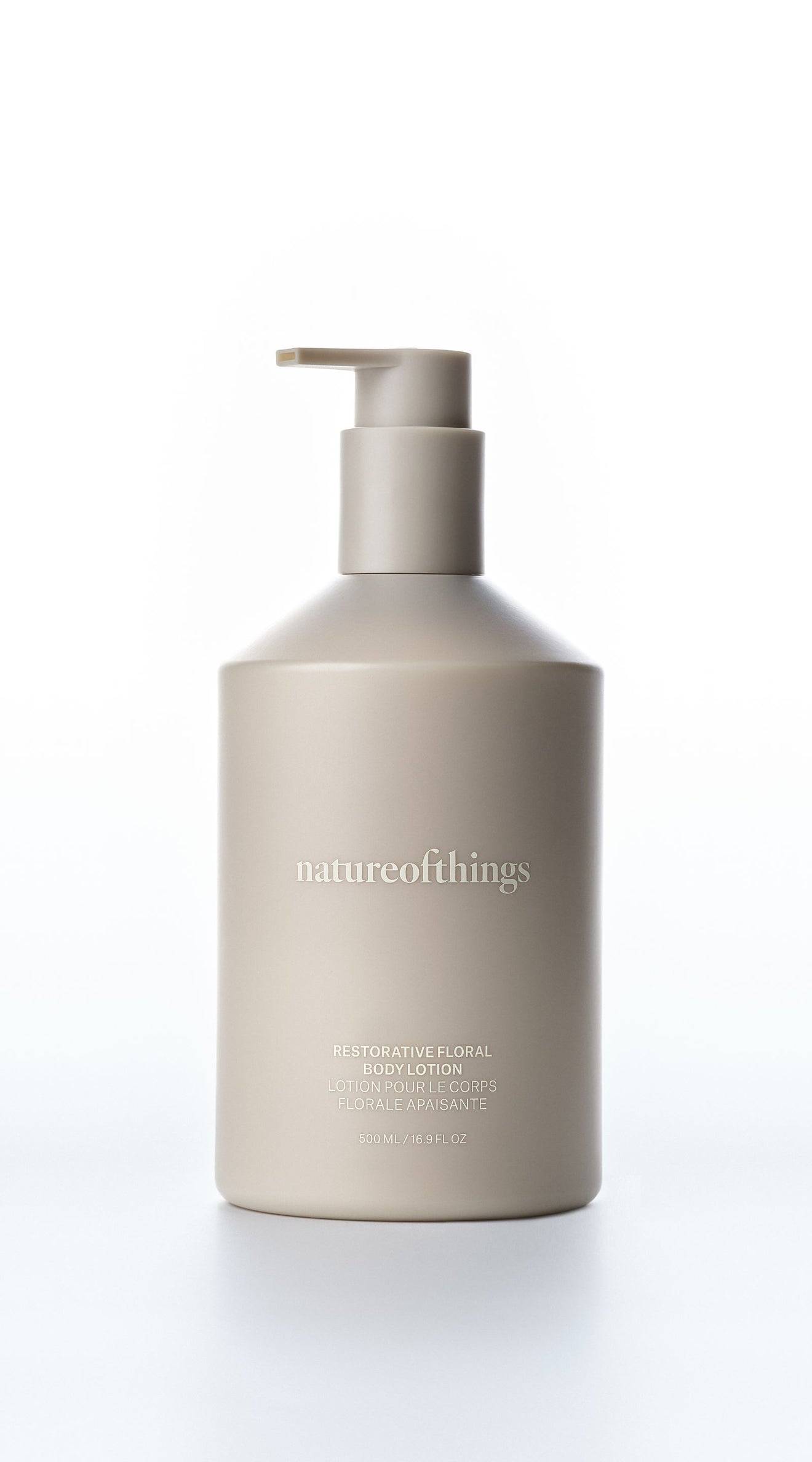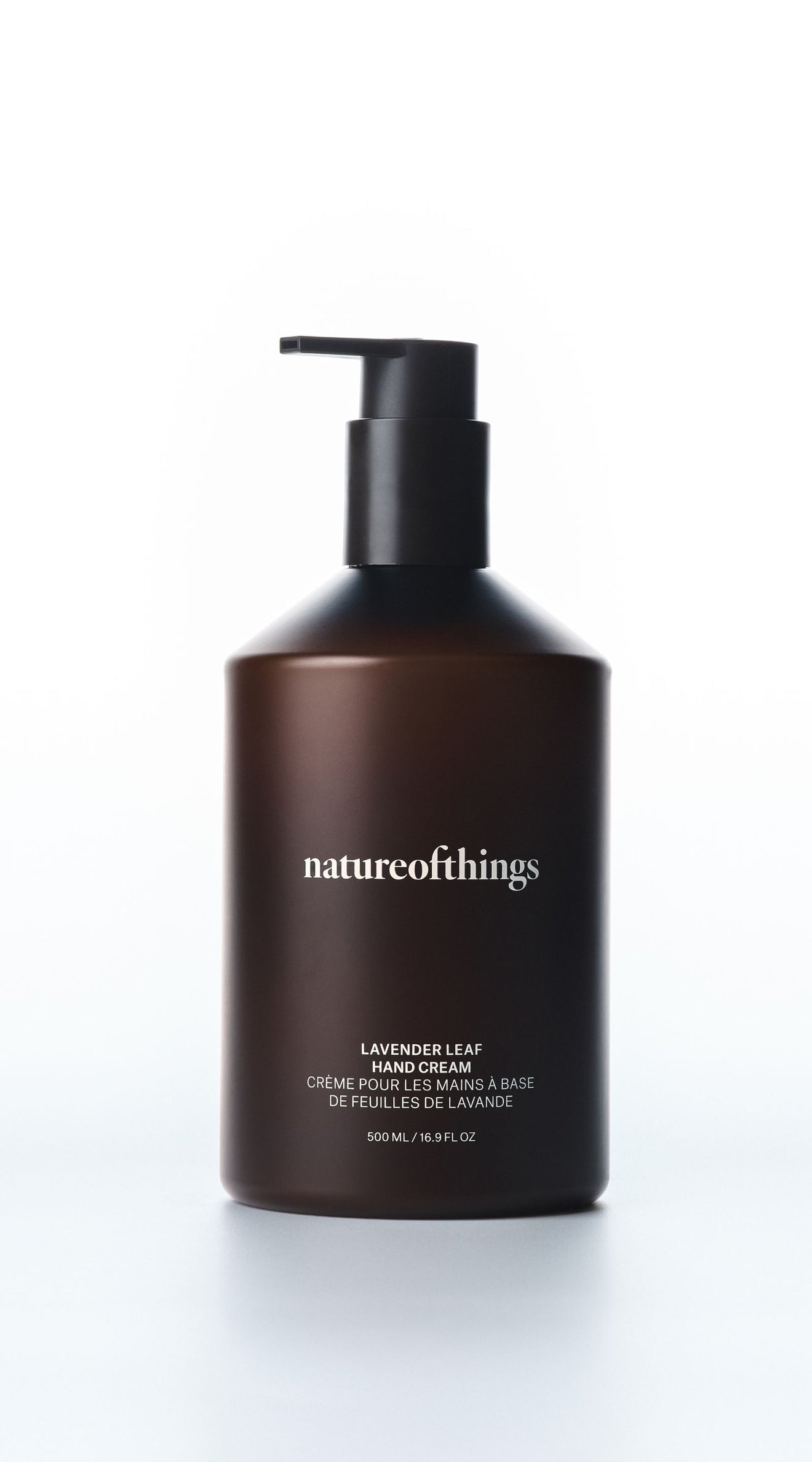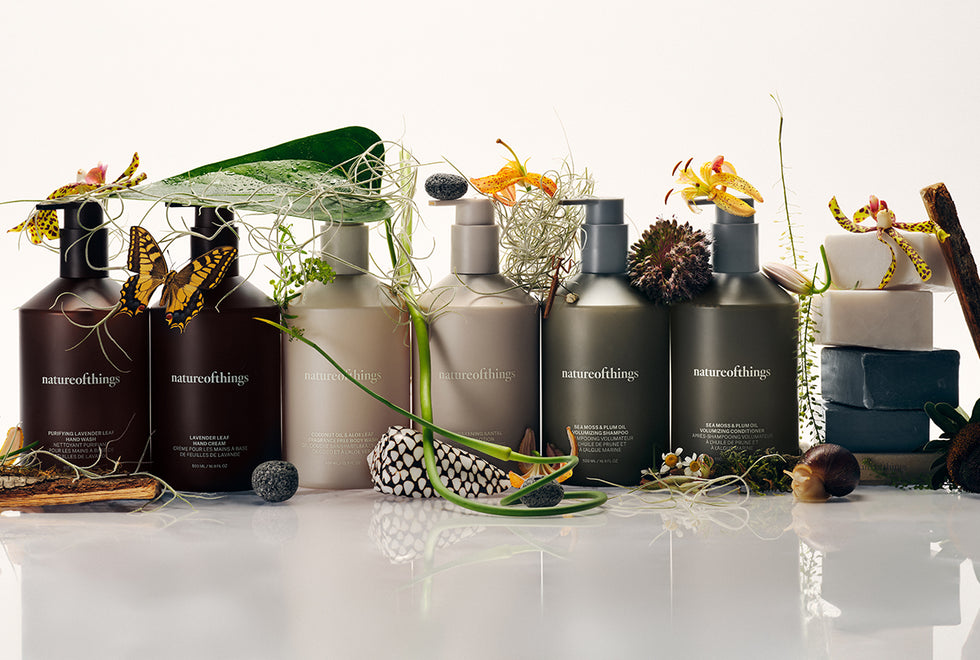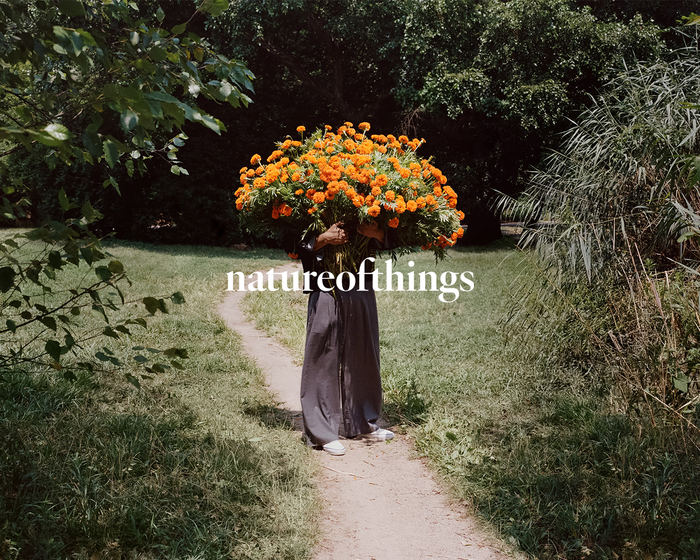

OUR APPROACH
We conduct three levels of natural origin review - provided in partnership with our ingredient suppliers and in accordance with regulatory guidelines. This creates our natural origin percentage. We study the bio-based make up of every product with a third party lab, to identify the organic carbon nature of each formulation. This creates our plant-based percentage. Both of these numbers are transparently communicated, so you have the clearest understanding of formula composition.


OUR PACKAGING
We prioritize sustainability throughout the development process. Products are packaged in PCR and recyclable packaging, upholding our commitment to responsible practices.



